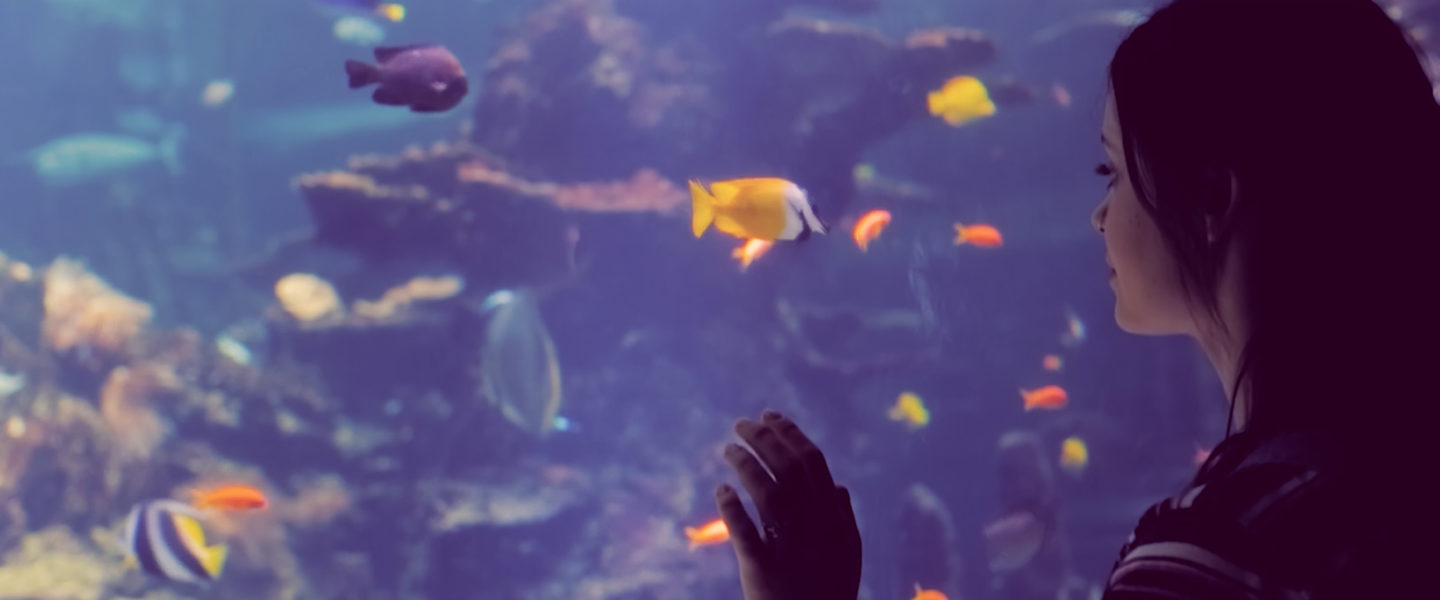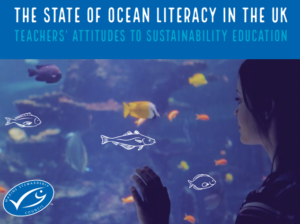The State of Ocean Literacy in the UK
Teachers demand better resources to help tackle growing environmental anxiety amongst students.
Thank you very much to all our schools who completed the teachers’ attitudes to sustainability education survey as part of our Marine #EcoSchoolsAtHome challenge in May. Created by the Marine Stewardship Council in partnership with ourselves and Sealife.
Findings
The survey of more than 1,300 UK primary and secondary school teachers found that half of teachers (53%) reported eco-anxiety as rising in their students. The results also show our teachers want to do more to help students take an active role in tackling their concerns about the environment but don’t feel equipped to teach ocean conservation and sustainability, especially if a none specialist.
Eight in ten (83%) teachers feel they had a role to play in supporting young people to take action on ocean sustainability, but fewer than two in 10 (18%) say they do not have the resources they need to do this in the classroom and 6 in 10 (60%) teachers agree key issues such as ocean sustainability don’t get enough attention in the curriculum.
HOWEVER encouragingly, the majority of students (74%) are keen to learn more about ocean sustainability issues, despite teachers’ worry that students do not understand (65%) the topic.
Kate Jones, Marine Stewardship Council, Education Curriculum Specialist: Young people were already anxious about the environmental challenges facing us, before their lives were disrupted by COVID-19. Teachers can play an important part in young people’s lives, teaching the next generation so that they are empowered to make sustainable choices. The oceans feed 3 billion people, regulate the climate and provide livelihoods to millions but they are under triple threat from pollution, climate change and overfishing. Four in five teachers feel their school could do more to help young people take an active role in tackling these issues. A simple way to do this is to encourage students to choose sustainable seafood, such as products that carry the blue MSC label, as this protects and conserves marine life, livelihoods and seafood for future generations.
Lee Wray-Davies, Eco-Schools Manager: It’s clear that anxiety about the environment is growing among young people. Teachers know they can have a positive impact in helping young people navigate their concerns by keeping them informed and by showing them there are practical steps they can take as individuals both locally and globally. As a former Geography and Environmental Science teacher I find it worrying that teachers feel that they do not have the resources they need to teach and discuss ocean conservation and sustainability. Ocean sustainability encompasses many different subject areas and concepts, and teachers need a variety of high-quality resources – particularly on issues like overfishing, biodiversity and food webs, and the future of our food. It is our job at Eco-Schools to help teachers access such resources and when and wherever possible showcase the fantastic work that is being carried out by our schools to help our Eco-Committees feel confident that they can and are making an difference.
Share your Marine topic actions with us
Resources and Activities
To help support our schools working on the Marine and Global Citizenship topics the Marine Stewardship Council provides free ocean-themed teaching materials for Eco-Coordinators and parents. Their teaching materials are suitable for Geography and Science (Step 4 Curriculum Links) and cover ocean sustainability, the marine ecosystems and food chains, global fish trade and food security.
Why not try these activities this half term:
1. Home school on ocean health using these resources
2. Play these games and activities
3. Unwind with these colouring activities of sea creatures
4. Try these tinned fish recipes with sustainable seafood
5. Follow these simple tips to help the oceans from your kitchen
6. Follow these 360 fishing boat tours of fishers at sea
We recommend for class: How my dad fishes for the future
Extremely useful and includes an award-winning film, information and exercises which enables teachers to dive into our changing ocean and explore how to end overfishing. It includes six classroom exercises and an accompanying teacher’s guide.


